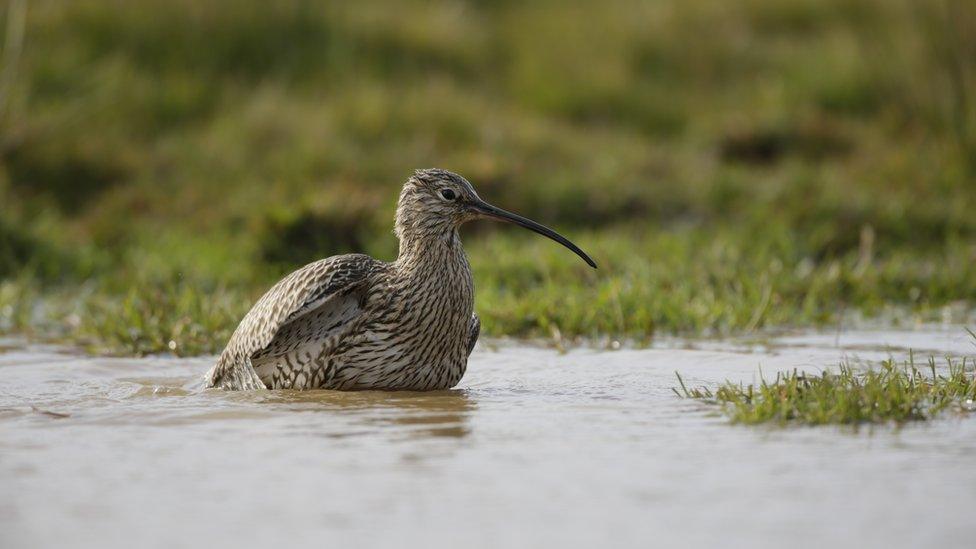Biodiversity: Fears over curlew birds declining
- Published
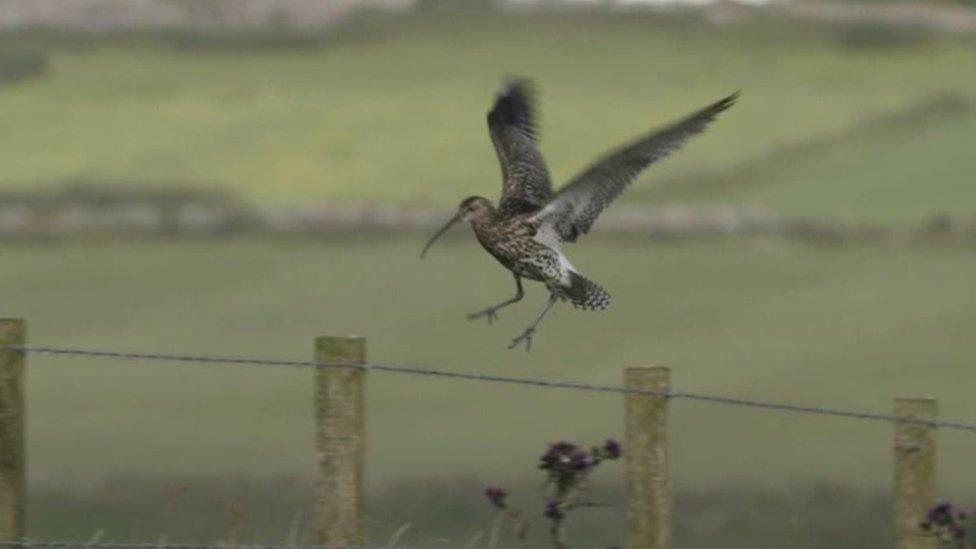
The curlew is the largest European wading bird, recognisable by its long, down-curved bill and long legs
The number of curlews in Wales has dropped by 80% since 1990 with farming practices partly to blame, a charity has said.
RSPB Cymru has called for farmers to be rewarded for creating suitable habitats for the bird when a new payments scheme comes into force after Brexit.
It is estimated only 400 breeding curlew pairs are left in Wales.
The Farmers' Union of Wales (FUW) said nature should not be prioritised at the expense of the rural economy.
RSPB Cymru has been working on National Trust-owned land in Ysbyty Ifan, Conwy county, to restore curlew habitats.
It claims the bird's decline was due, in part, to farming practices.
"[It is linked to] how hay is harvested as silage earlier on in the year, but there's also been a decline in invertebrates, which is food for the curlew," said Sabine Nouvet, an ecologist with the trust in Snowdonia and Llyn.
The Welsh Government has consulted on proposals for the agricultural payments system - due to replace the Common Agriculture Policy - and will consult further later this year.
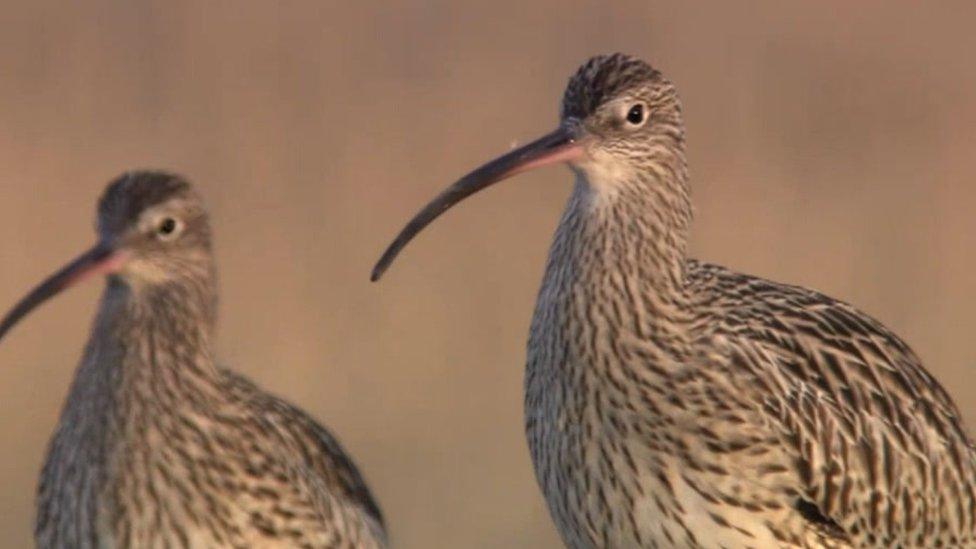
Curlews eat worms, shellfish and shrimp
"If you've got partially suitable nesting habitat, for example, but perhaps it's too long or thick, then they could either reintroduce cattle or do some mowing," Rhian Price, a conservation officer with RSPB Cymru, said.
"Or perhaps closing ditches and rewetting areas, so that the soil becomes wet and provides more food for the curlew."
FUW president Glyn Roberts, who farms near Ysbyty Ifan, said conservationists needed to stop dictating to farmers.
"We have to have the right balance between the economy - to keep people in our rural areas - and conservation," he added.
"But at the moment I feel that too much emphasis is being put on the environment at the detriment of production and the economy."
The Welsh Government said it had supported the curlew through parts of its £20m sustainable management scheme.
A spokesman added its post-Brexit policy would "ensure sustainable support for our farmers whilst delivering huge benefits for more resilient ecosystems to support our species and habitats".
- Published6 December 2018
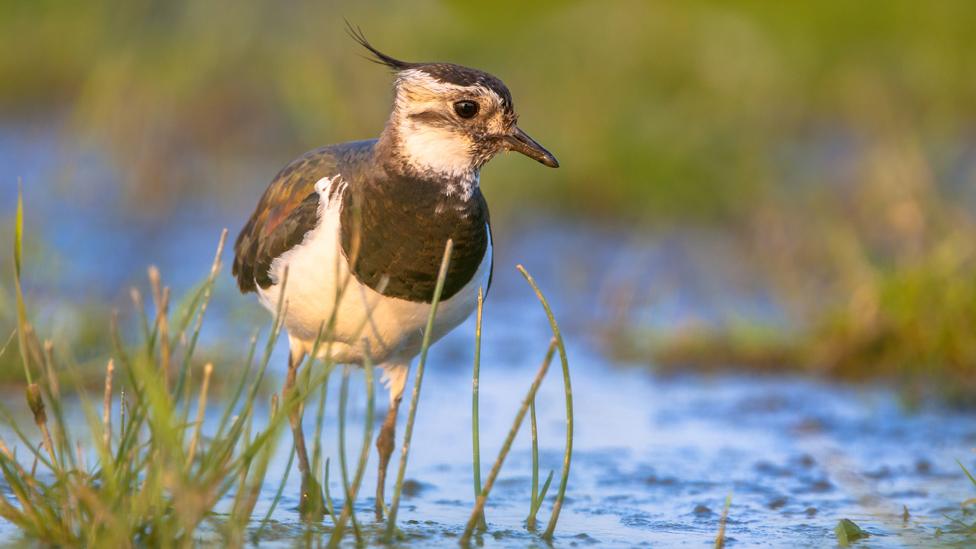
- Published24 August 2018
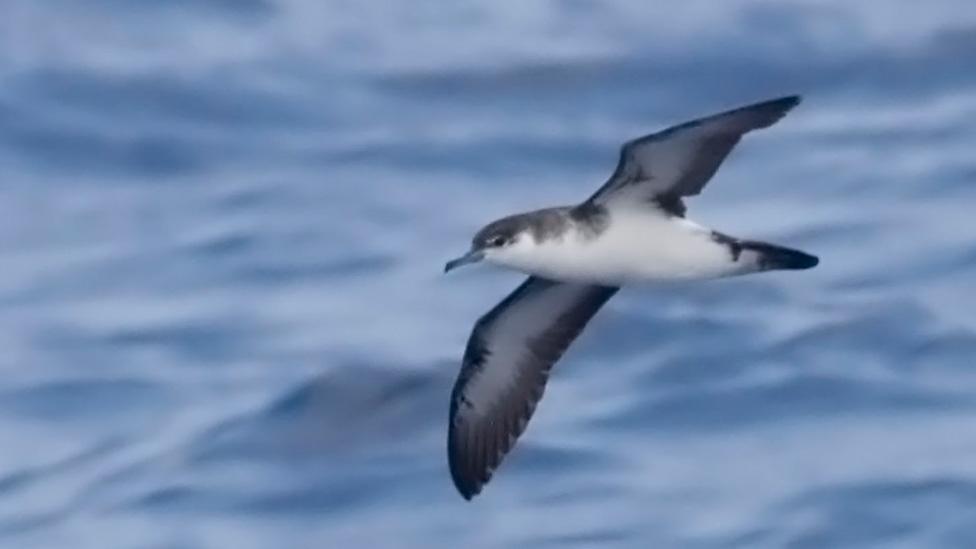
- Published24 January 2018
